Heirloom tomatoes have flavors that are out of this world amazing, but not all are easy to grow. Tomatoes are known for being finicky plants, so you want to grow the easiest heirloom tomato varieties if you're a new gardener.
Over five years ago, I switched to only growing heirloom tomatoes. I tried the hybrid cultivars from my local garden nursery, and when compared with the heirloom plants I grew from seeds, the flavors were bland. I never realized that the type of plant you grow makes a huge difference in your plants' quality of food!
If you decide you want to see why they receive all of the hype, don’t waste time growing finicky cultivars. Here are the easiest heirloom tomatoes to grow in your garden.
9 Easiest Heirloom Tomato Varieties to Grow
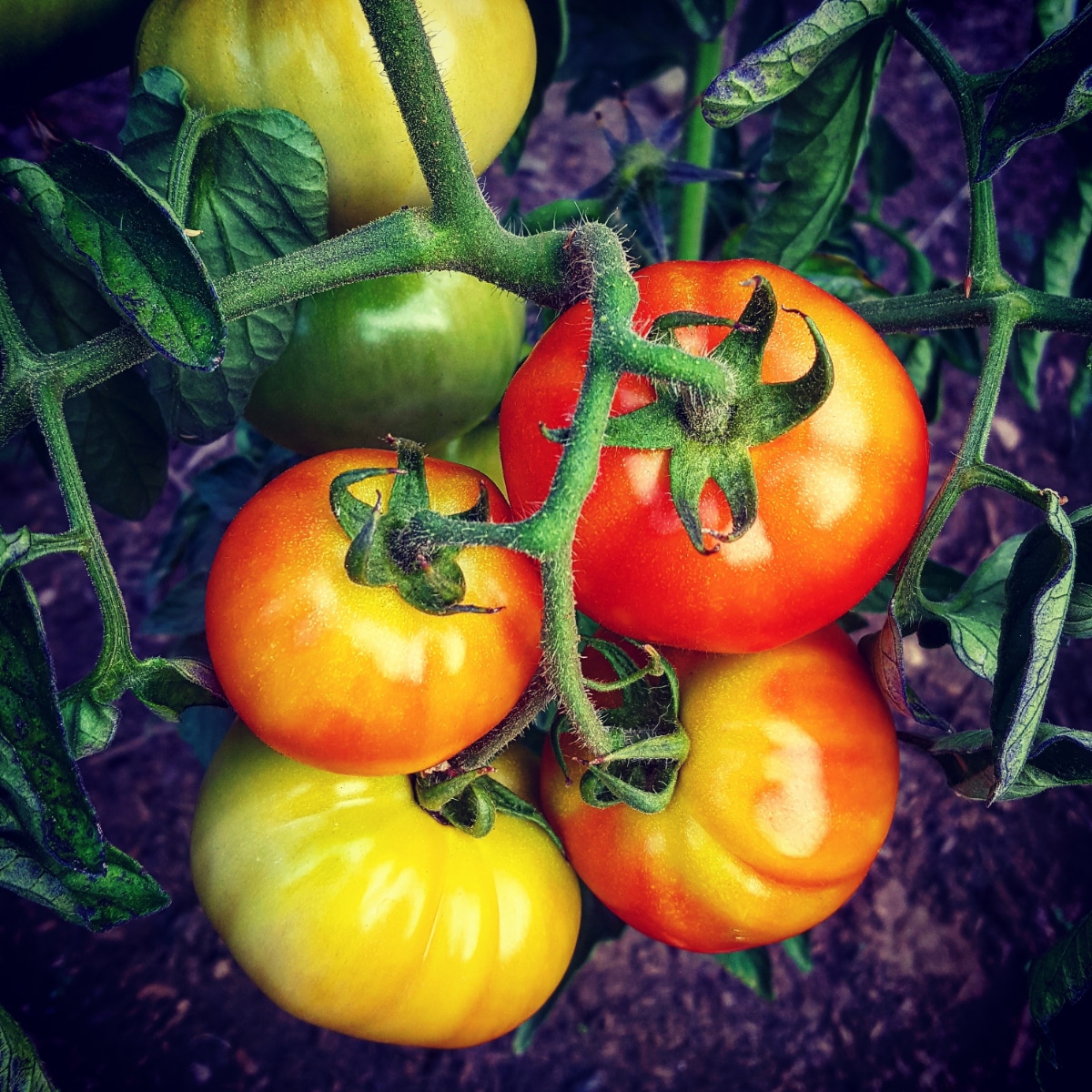
After five years of intense vegetable gardening, I think I’ve tried all of the varieties of heirloom tomatoes, or at least it feels that way. I went through my gardening journal and picked out the best cultivars that I've grown through the years.
These heirloom tomato varieties lean towards being more disease resistant, and all of them are indeterminate plants. I picked the ones that have average maturing lengths that fit into most USDA hardiness zones.
Let’s take a look!
Amish Paste
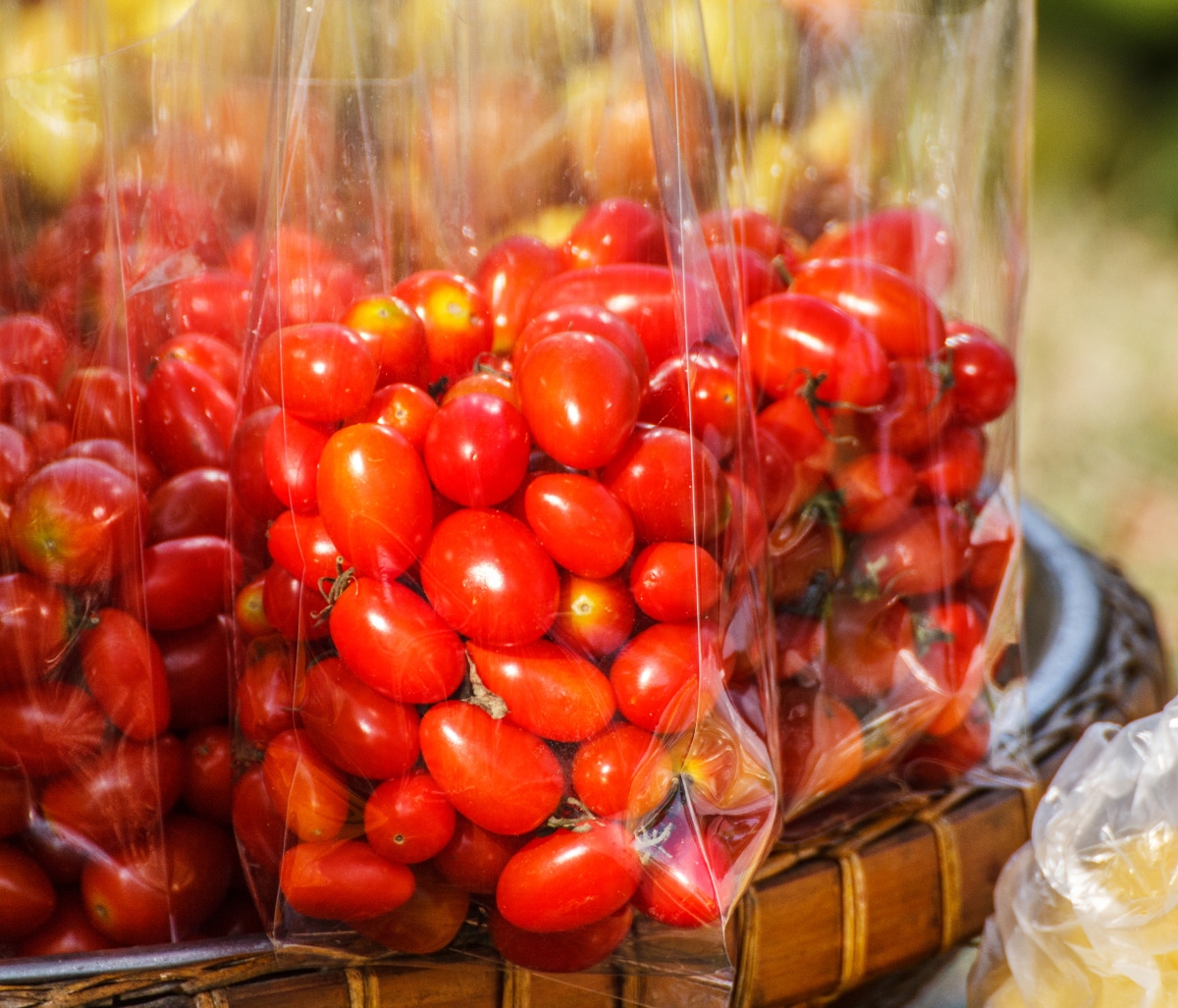
If you want to grow heirlooms to make homemade sauce or canning, Amish Paste is the way to go. A paste tomato means that it has more meat and contains less liquid and seeds.
When you make homemade sauce, more meat in the tomato creates a thicker sauce and takes less time to boil down to the right consistency. I tried these in the very first garden that I grew, and we had fantastic results, they taste amazing!
Amish Paste is an indeterminate tomato that takes around 80 days to mature. One difference is that these plants don't grow as large as some of the other indeterminate tomato plants. The plants produce six to eight-ounce fruits and fruit all season long.
Arkansas Traveler
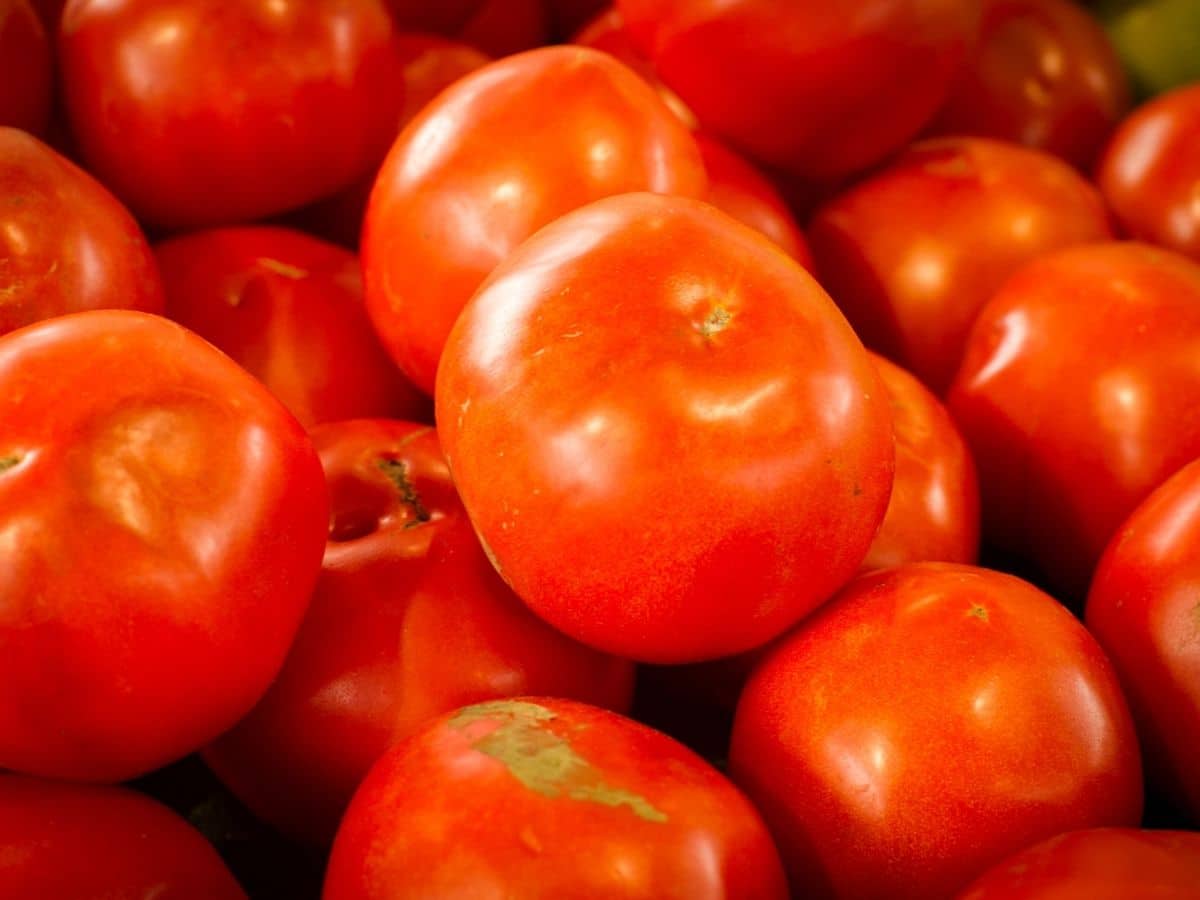
Gardeners who live in a climate with high heat and humidity should consider growing Arkansas Traveler. This heirloom tomato has a mild flavor that makes it a great choice for homemade dishes, salads, and slicing.
Arkansas Traveler stands out as a fantastic heirloom tomato variety because it's an indeterminate plant with a pinkish-red hue and crack-resistant skin. Cracking tends to happen when tomatoes are exposed to less moisture. It's known for having strong resistance against diseases while handling dry spells.
The plants produce six to eight-ounce fruits, the perfect size for salads. Expect to wait up to 80 days for the fruits to mature, and make sure you provide stakes or cages to support the plants.
Bonny Best
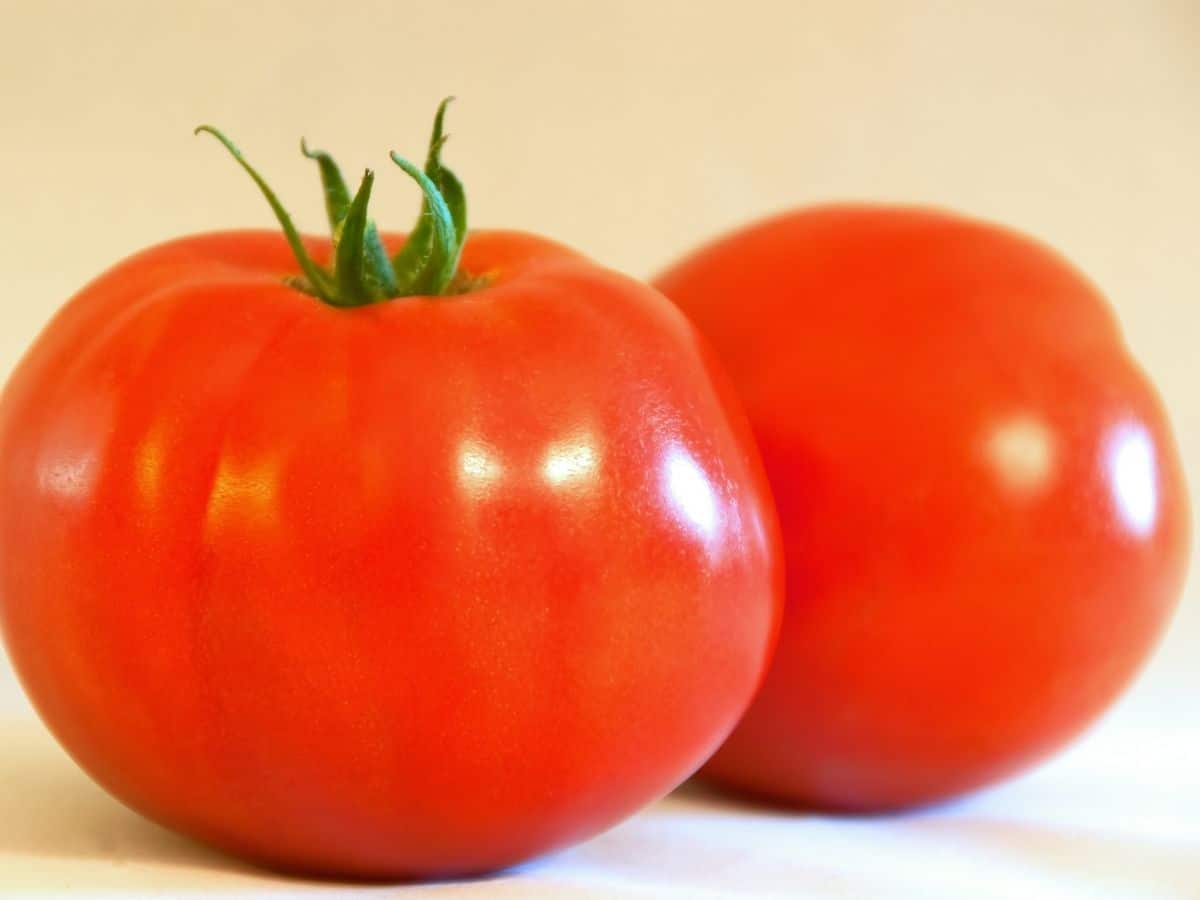
Bonny Best is the ultimate canning tomato. The fruits are the perfect blend of sweet and tart, perfect for canning homemade tomato sauce or diced tomatoes. Once matured, the bright red fruits weigh up to 10 ounces each, so you know that these fruits produce a lot of sauce.
Bonny Best originates back in the 1890s and quickly grew in popularity among gardeners. It has won numerous awards and is a favorite among homesteaders. These plants take up to 80 days to mature, and they fruit all season long, producing large yields.
Without a doubt, my garden always contains a few Bonny Best tomato plants. They're the quintessential canning tomato; I need these for the hundreds of jars of tomato products that I can each year.
Brandywine
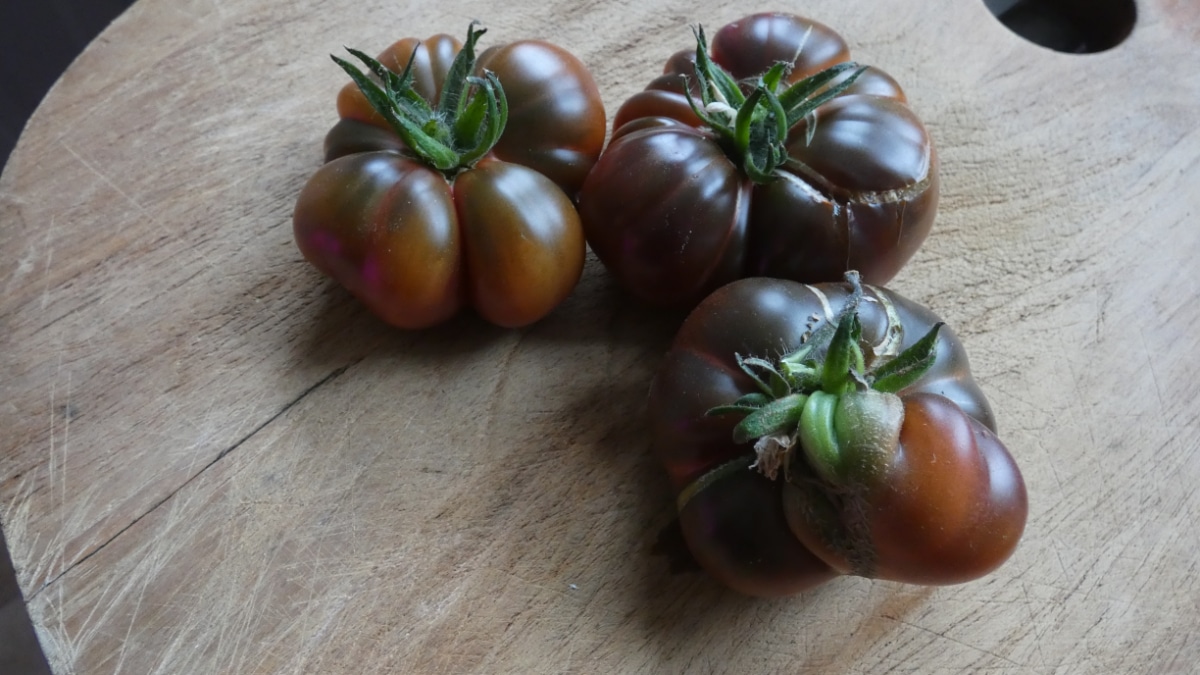
Brandywine is one of the largest slicing heirloom tomato varieties that you can grow. The fruits are available in different shades of pink, red, yellow, and even black.
Yes, seriously, you can grow black tomatoes!
Brandywine tomatoes are a beefsteak type of tomato that is creamy in texture, and the fruits have strong flavors while being low in acid. This variety dates back to the 1880s, so you know that it's a popular gardener choice.
These fruits are large; it’s not uncommon for some to weigh up to two pounds. It takes up to 100 days for these plants to mature due to the size of the fruits. That also means that you must stake these plants, or they’ll topple over from the weight.
Some Brandywine tomato plants reach up to 9 feet tall!
Cherokee Purple
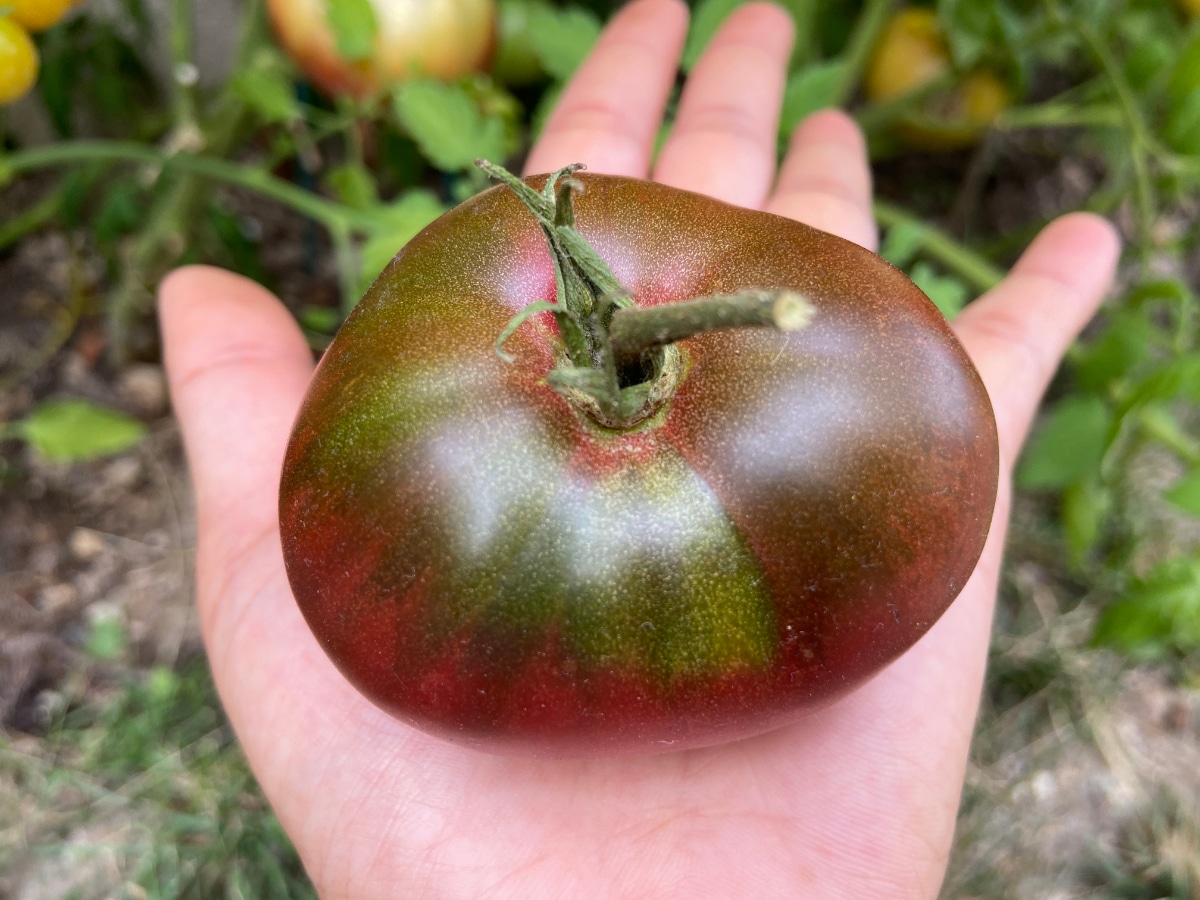
Cherokee Purple tomatoes are another large-sized heirloom tomato that gardeners love to grow. Gardeners believe that this variety came down from the Cherokee Indians, known for producing large harvests. It's a gorgeous fruit that has a purple-red tone.
These tomatoes are a bush-style, indeterminate plant that takes around 80-100 days to reach full maturity. The plants tend to be resistant to diseases and handle dry spells of weather better than others. Make sure you have a cage or stake to keep the plants stable.
Cherokee Purple plants produce large fruits that weigh up to 16 ounces. They make delicious slicing tomatoes for sandwiches and recipes.
German Johnson
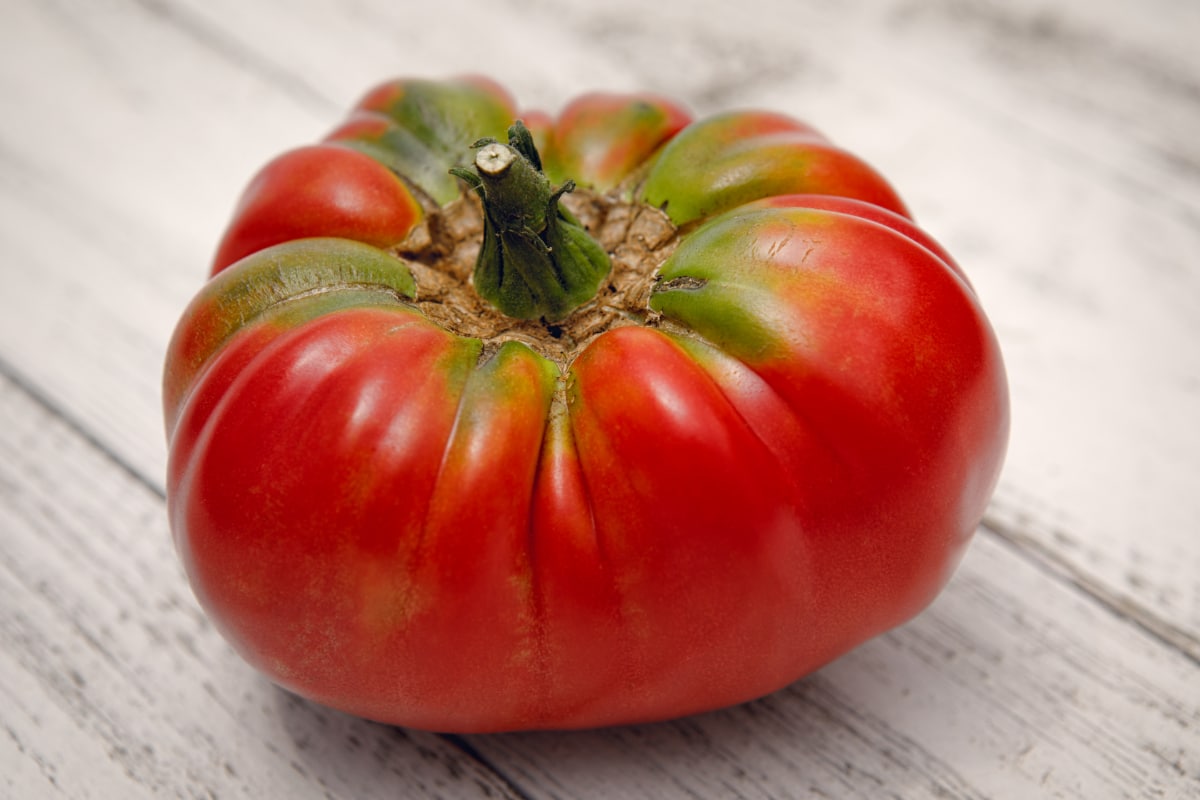
German Johnson tomatoes are in the middle of the road. They taste great fresh, work great for canning, and act as slicing tomatoes. So, if you want a tomato that does everything, consider growing German Johnson.
I never grew this variety until last year when I found it at a local garden nursery that only sells heirloom plants. I always grab a plant that I haven't grown yet, so I went home with a few and loved them.
The plants were prolific, giving me over 20 pounds of fruits, and they tasted fantastic. I used them to make quarts of tomato sauce and made several basil tomato salads with them.
These tomatoes are an indeterminate plant that produces dark pink, nearly red, fruits that weigh between one to two pounds. The fruit have a sweet taste, yet are tart. It has few seeds and skin that rarely cracks while maturing. Expect these plants to take around 80-days to mature.
Hillbilly
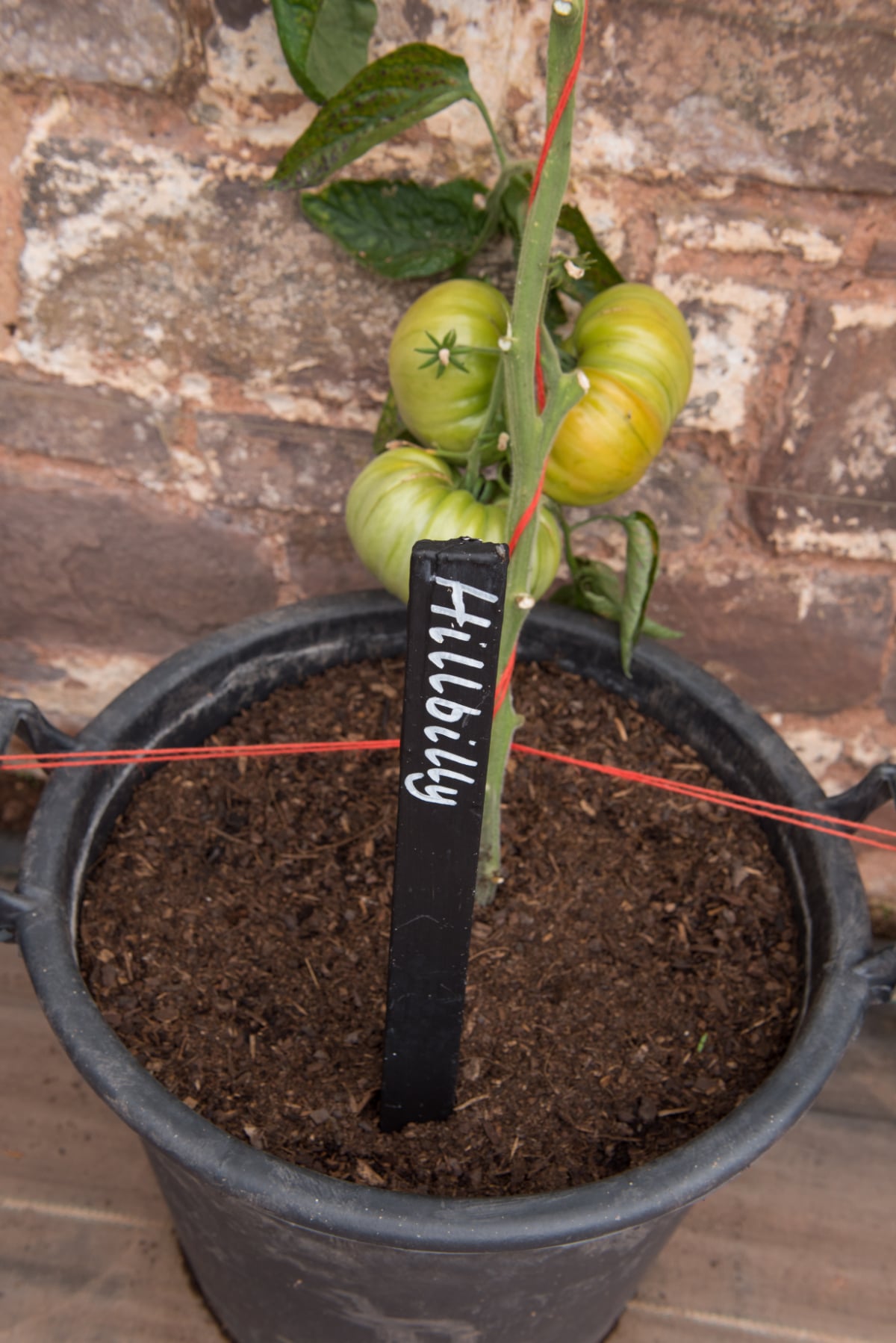
I grew Hillbilly tomatoes for the first time last year, and I found out that I truly love these tomatoes. Hillbilly tomatoes are a beefsteak style tomato that produces sweet, low-acid fruits with mottled red and yellow skin, gorgeous colors to see on heirloom tomato plants.
These fruits weigh up to two pounds each, so they work great as slicing tomatoes. I didn’t expect them to be as large, but the fruits came close to the same size as a Brandywine tomato. My favorite part of these plants is the fruit; the coloring stands out in the garden and looks wonderful.
Hillbilly tomatoes are an indeterminate variety that produces fruit all growing season. It takes 85 days after transplanting for the fruit to reach maturity.
Kellogg’s Breakfast
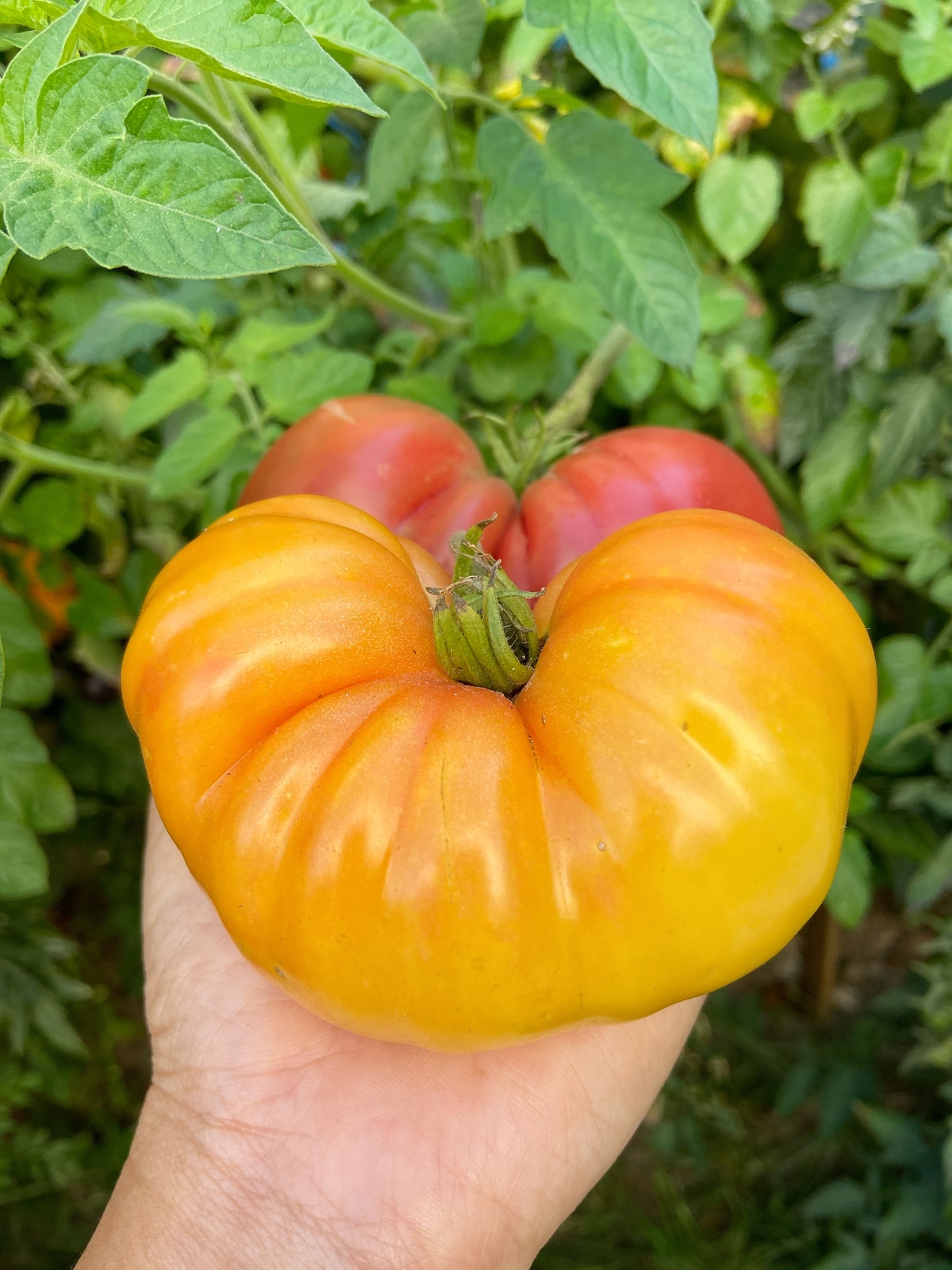
If you want a beefsteak tomato that bursts with flavor when you bite into it, grow Kellogg's Breakfast. This is an indeterminate tomato with thin, orange skin and thick meat that gives it a heart-shaped appearance.
The fruits are impressive sizes; an average tomato from a Kellogg’s Breakfast plant weighs up to two pounds. That gives you huge slices of tomatoes for your BLT sandwiches and hamburgers.
They might be slicing tomatoes, but the salsa and tomato soup that comes from these tomatoes is amazing. The abundance of meat gives the soup a creamy texture with rich flavor that my family loves. Expect these plants to give you a harvest 80-90 days after planting.
Yellow Pear
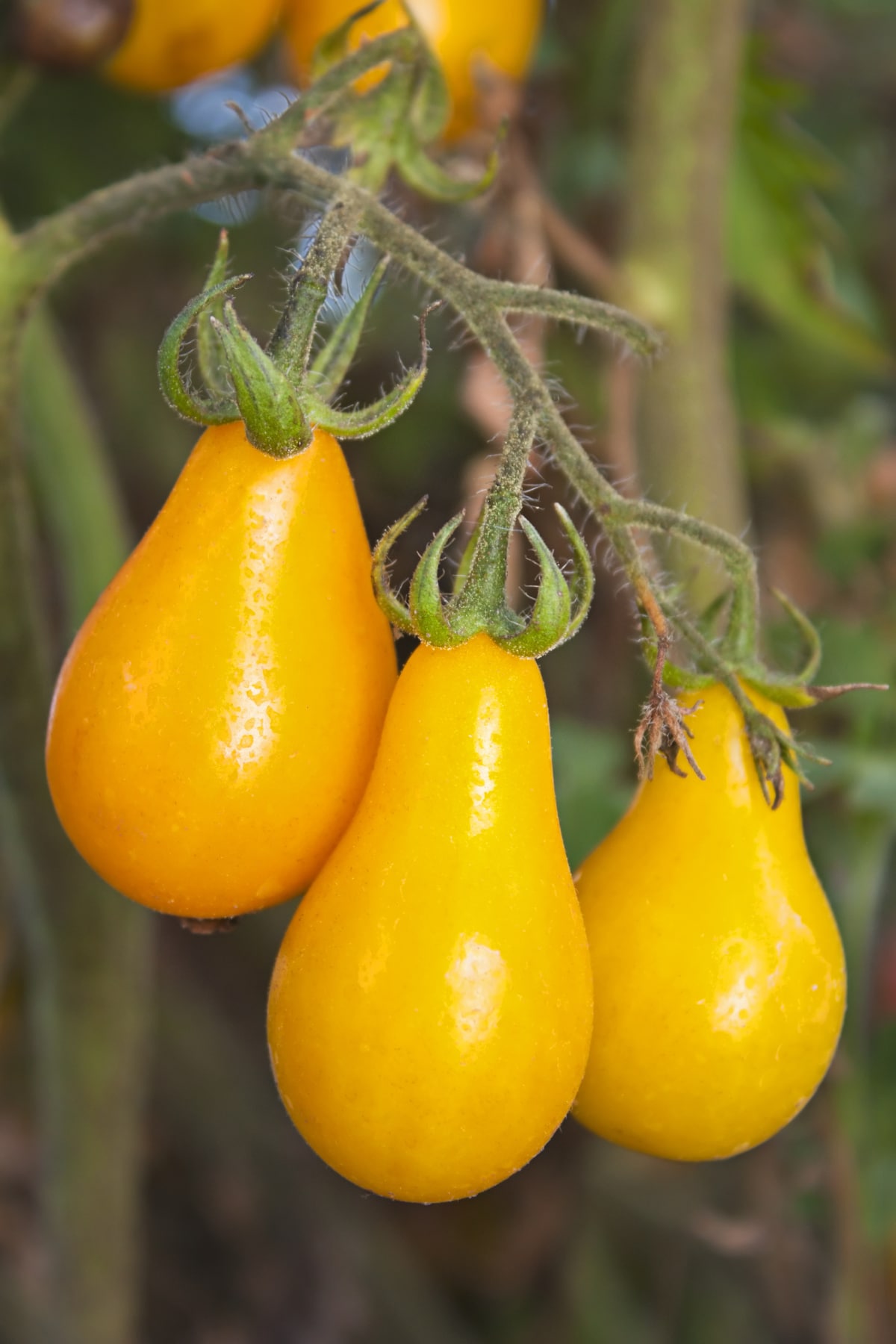
Yellow pear tomatoes are an indeterminate plant that resists diseases and matures in 80 days. The plant produces small, snack-sized fruits that are shaped like yellow pears. Their yellow tomatoes give a gorgeous pop of color in the garden.
I don't grow too many small tomato fruit plants because we preserve as much as possible, but these tomatoes' flavor is great for salads. It's not too strong; it won't overwhelm your dish, but it's not bland either.
These tomatoes are great for fresh eating because of their size or use to make delicious tomato sauces. Make sure you still include a stake or trellis. The plants are large despite the small size of the fruits.
Other Great Heirloom Tomato Varieties
If you're still looking for more then you might be interested in trying out one of these.
Mortgage Lifter - It is said that the Mortgage Lifter is so named because the person who created it managed to pay off their entire mortgage with these tomatoes, they were that good! I don't know if that's true, but they are VERY tasty.
Green Grape- When I got to the end of this list I realized I didn't include any green tomatoes, and that's a shame! So, if you want to grow all the colors of tomatoes, you need to get yourself some Green Grape which are great for making green ketchup with.
Roma- While Roma Tomatoes aren't normally considered an heirloom variety they are open-pollinated, just like heirloom tomatoes and they are the number one tomato for salsa and sauces so I just couldn't leave it off the list.
Sub Arctic Plenty - The Sub Arctic Plenty will reach maturity in just 45 days, making it one of the fastest maturing tomato varieties there are.
Tiny Tim- If all you have is a spare windowsill to grow tomatoes in then you NEED Tiny Tim. These small bushes are only about a foot tall at most but still manage to put out a lot of tomatoes.
Pink Beefsteak - Pink Beefsteak is incredibly easy to grow and it looks so gorgeous you might not have the heart to cut into it.
How to Pick the Best Heirloom Tomato Varieties
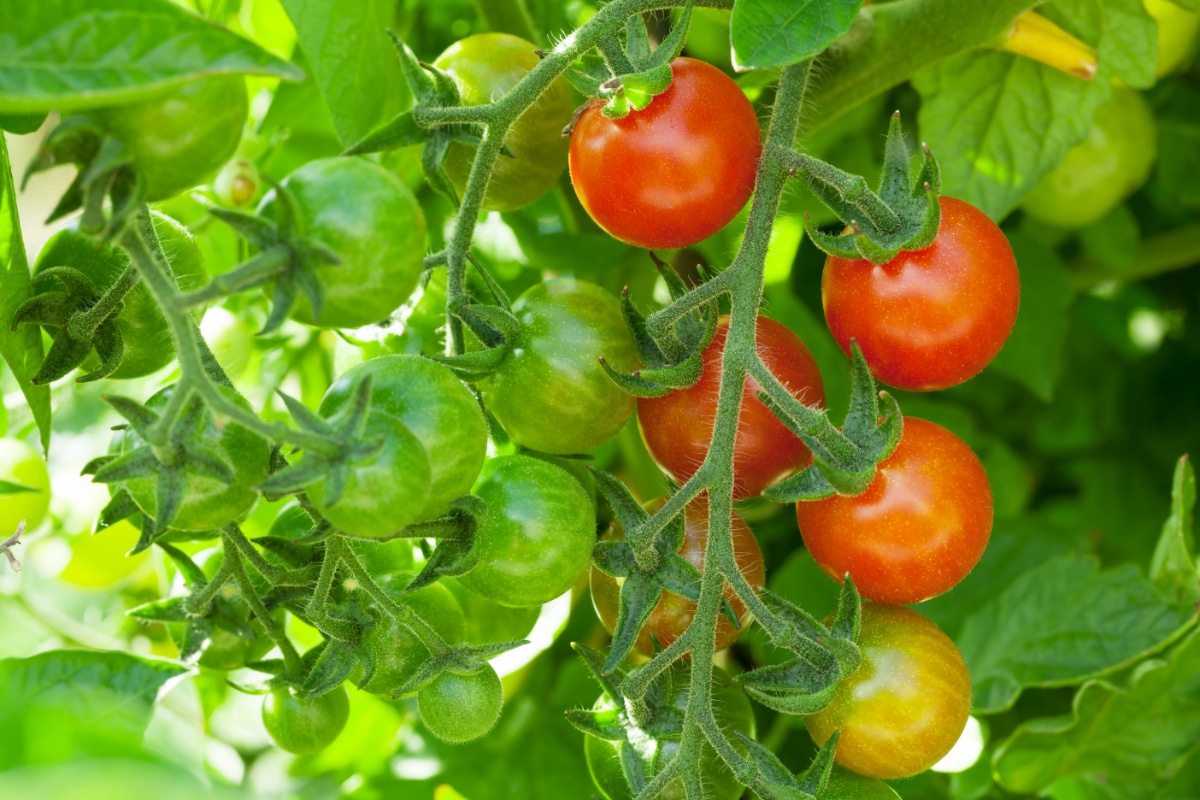
There are a few different types of tomatoes, I'm not talking about how the sweet flavor vs the juicy fruits. I mean the Heirloom varieties and the hybrid variety. Modern hybrids vs the older, heirloom tomato seeds. Heirloom tomatoes are a specific type of plant that isn’t a hybrid or cross of other cultivars. When you look at seed packets, they’ll tell you whether they’re heirlooms or hybrids. Heirloom plants have a history, and some date back for centuries. Families often pass down their favorite seeds and plants. Hybrid tomatoes will have F1 in the name. That F1 means that the flavor profiles, disease resistance, and really everything about that tomato will not be the same in future generations if you save the tomato seeds.
I prefer to grow only heirloom tomatoes because their flavor profile is much richer than anything else that you'll try. Heirlooms win the flavor test every time, and the number of varieties available to grow is endless.
Picking the right tomato varieties to grow is hard. If I had space, I would grow them all, but I can't. Here's how to pick the best ones for your garden.
How You Plan to Use Your Tomatoes
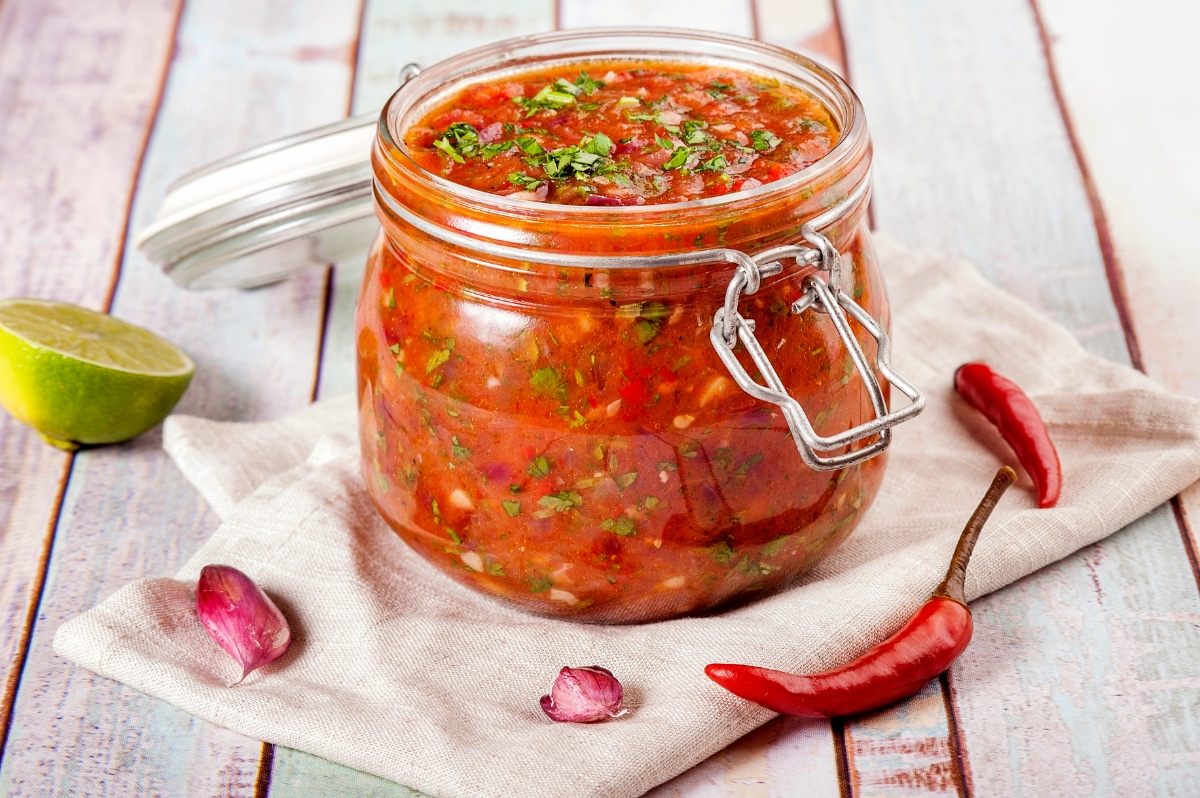
Not all tomatoes are created equal. Some are better for slicing. If you plan to use your fresh tomatoes on all of the hamburgers and BTL sandwiches this year, then make sure you have a few slicing tomato varieties in your garden.
If your goal is to can as many quarts of tomato sauces as possible, look for the best heirloom canning tomato varieties. These tomatoes tend to have less liquid and meatier to create the thick consistency that you want.
Plum tomatoes are best if you want to make fresh salsa with a sweet taste.
Cherry tomatoes or other small varieties are great for cutting up and eating fresh in salads. Ideally, these tomatoes will have few seeds and less liquid; no one wants a salad full of tomato juice.
Days to Maturity
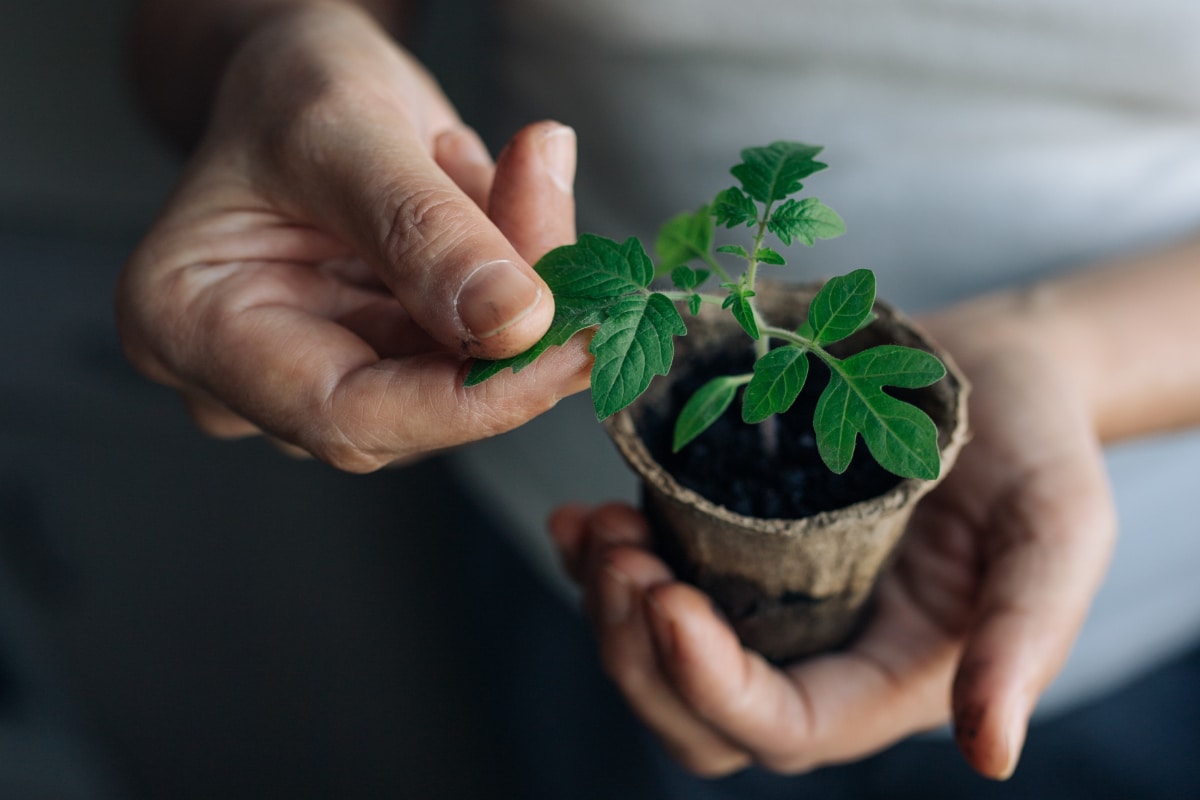
The days to maturity, that is how long it takes tomato seeds to become full adult plants that are producing fruit, should match your growing season
Take a look at your USDA growing zone to find your first and last frost dates for your region. The number of days from your last to first frost days equals your growing season.
Next, take a look at the days to maturity, which are typically listed in each plant's description. You want to pick a variety of tomatoes that fit comfortably in that range. If your growing season is 110 days, you don't want a variety that takes 100 days to reach maturity.
Ideally, there should be at least 30-40 days between maturity and the final frost date to give time to harvesting, but more is better.
If your growing season is short because the soil temperature will drop quickly and you get frost early in the year then you will have to start your tomatoes indoors. How early you start them is up to you, but you won't want to transplant your tomato plants into the warm soil of your garden once they start to flower. It's a delicate balance that just takes time to understand.
Indeterminate vs. Determinate Tomatoes
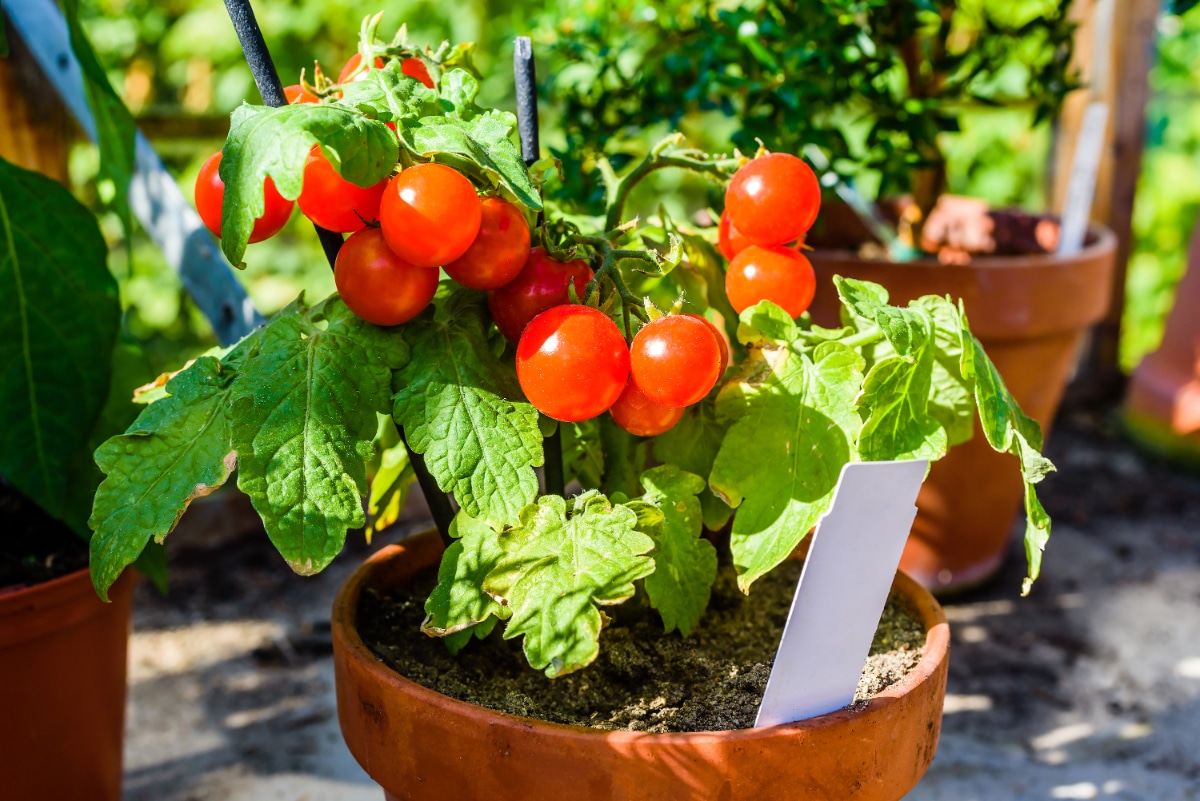
Another difference to consider is indeterminate varieties vs. determinate tomatoes.
I know you’re wondering, “what does indeterminate and determinate even mean?” It's something that all gardeners have to learn.
Determinate tomato plants are smaller and often don’t require staking or caging, they come out more like a bush than the tall tomato vine you would usually think of. They produce all of their fruits in a determined amount of time. Once they mature, all of the fruits ripen around the same time, and then the plant is done.
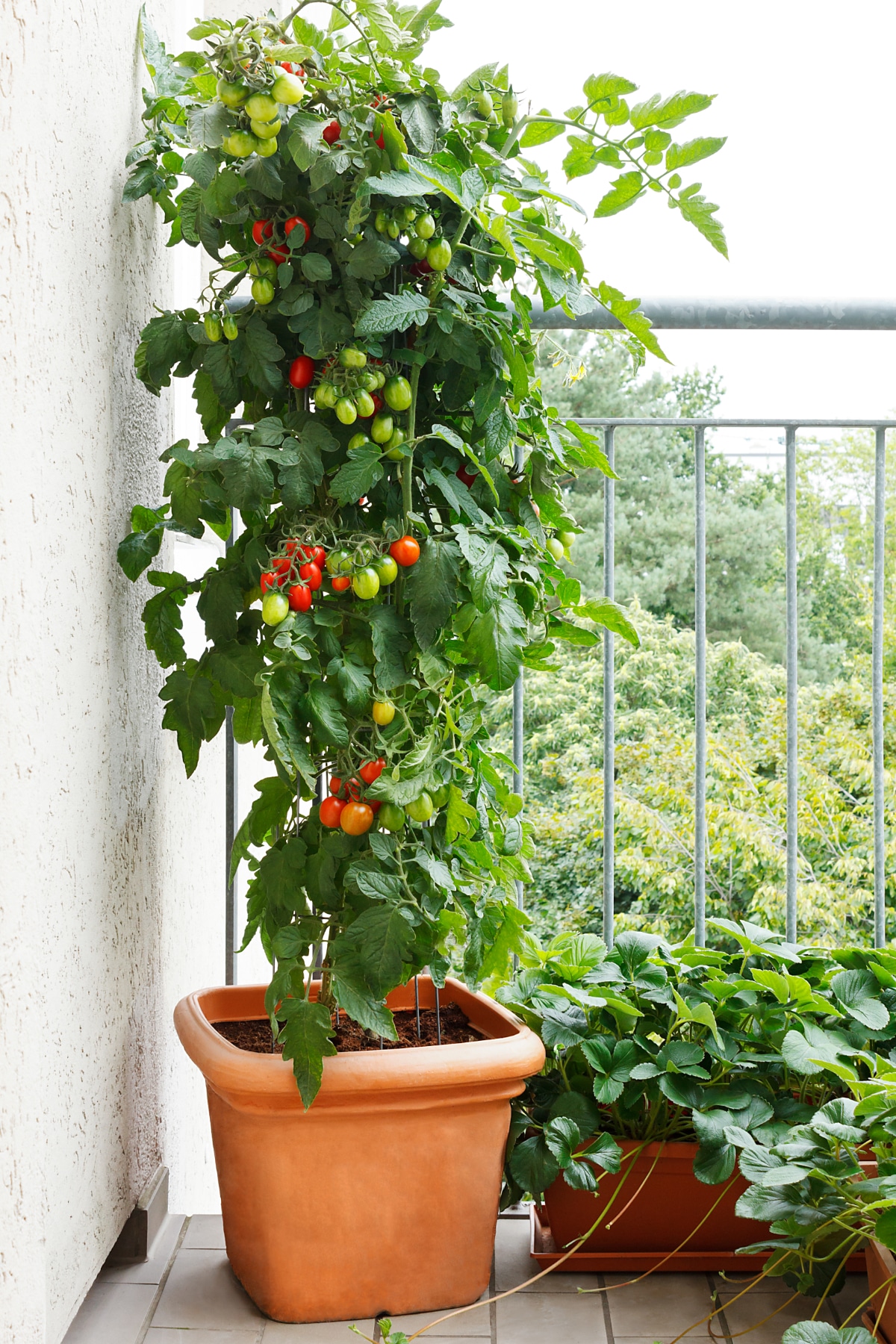
Indeterminate tomatoes are large and nearly always require staking. The fruits mature over a wide period instead of all at one time. Once the plant matures and starts to ripen the fruit, the plant continues to do so until it dies or meets a frost. These heirloom tomato plants will give you a lot more crops of fruit so long as you keep picking them.
Final Thoughts
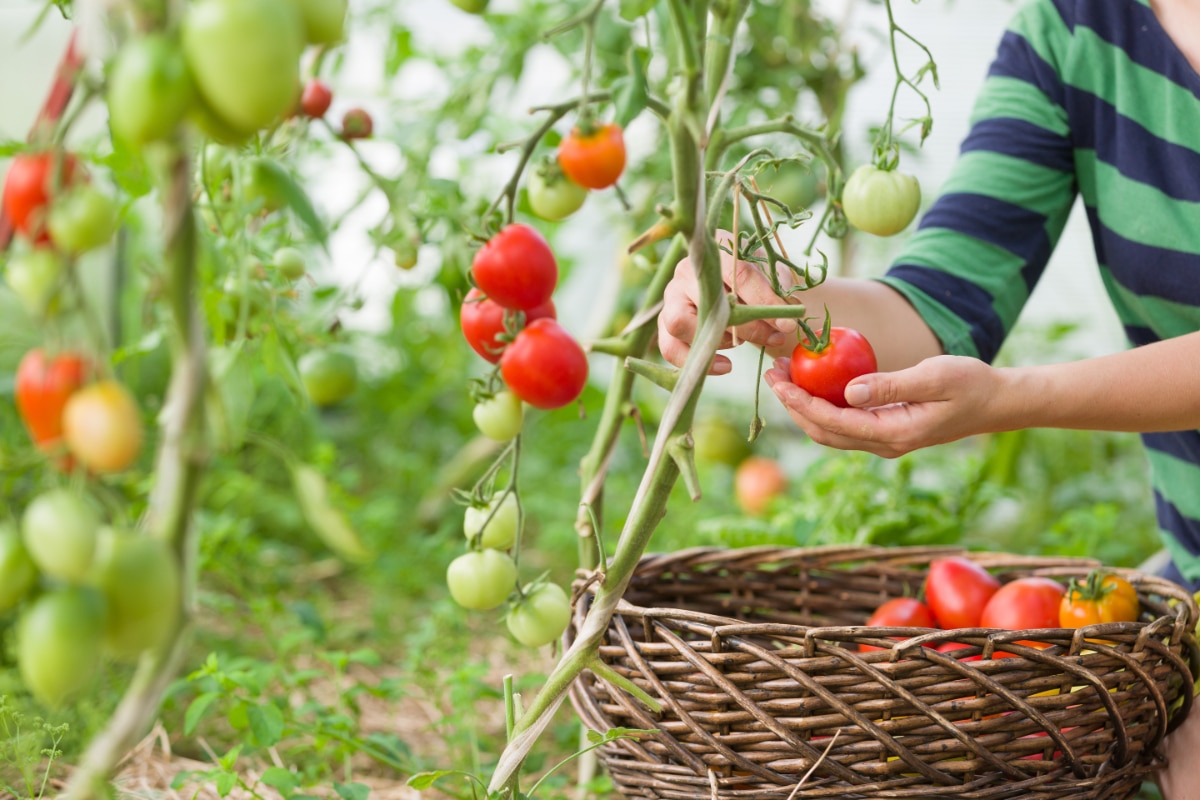
Growing tomatoes is something that all gardeners want to do, but finding the right ones to grow takes trial and error. These nine easiest heirloom tomato varieties to grow resist diseases and produce fruit with a complex taste in 80-100 days. Try growing a few this year to see which ones you love the most. You may even find that people who hate store-bought tomatoes are turned into tomato lovers.

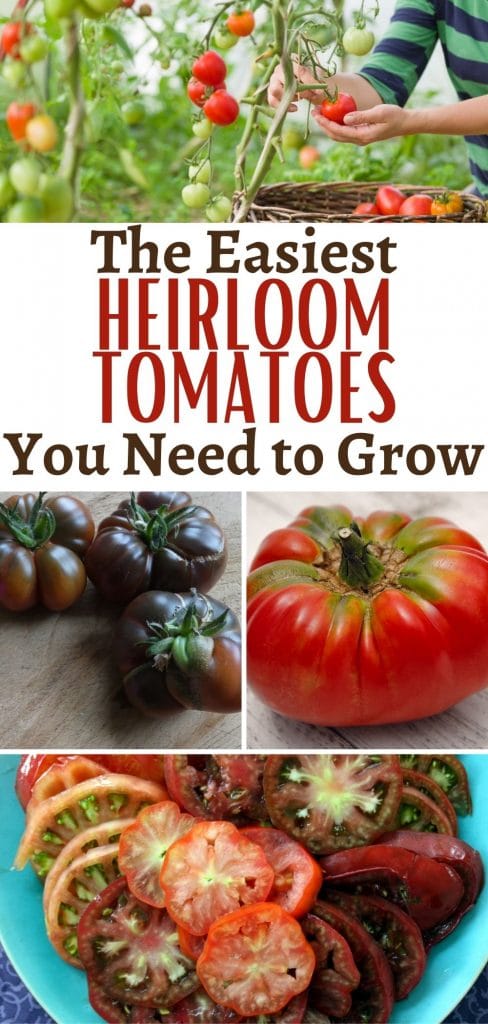
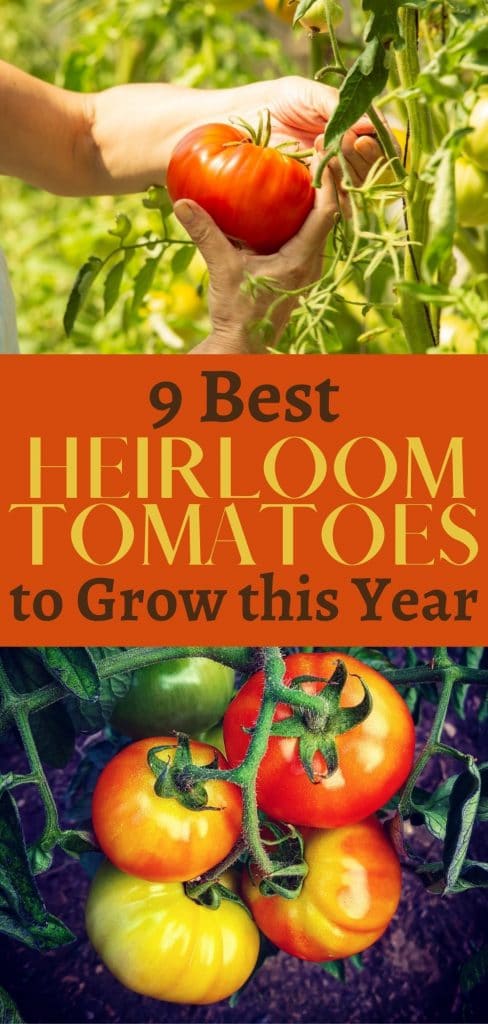
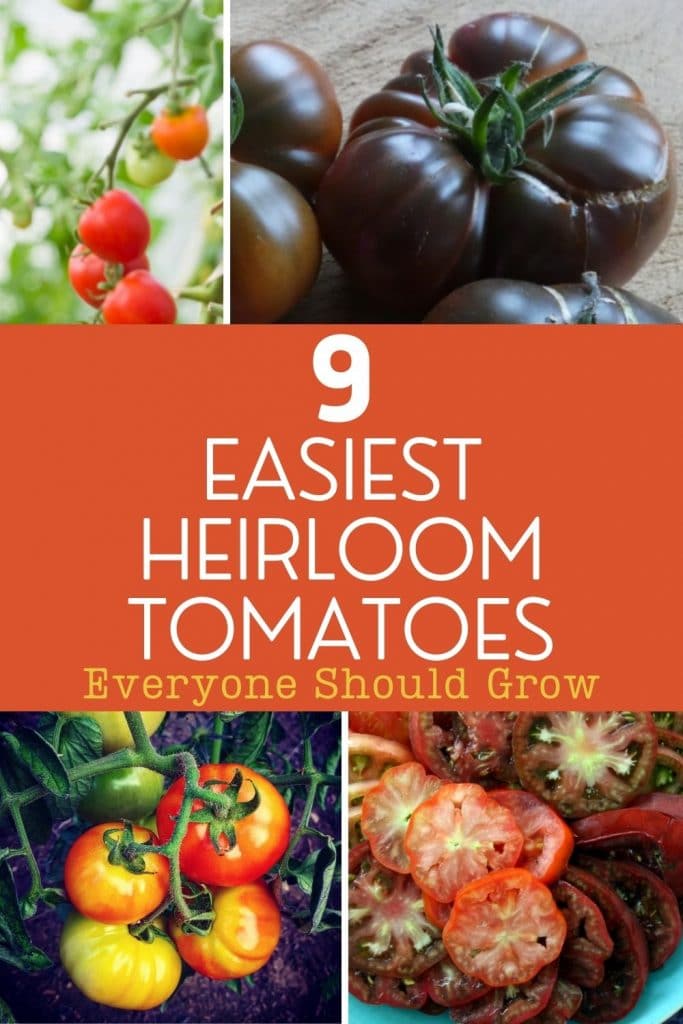
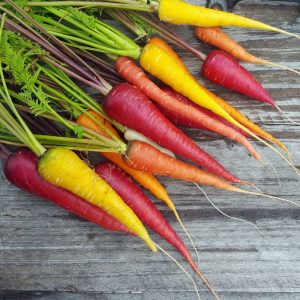
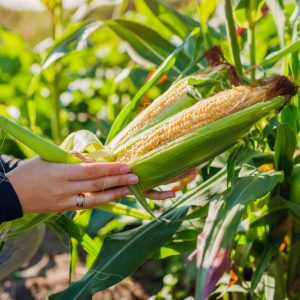
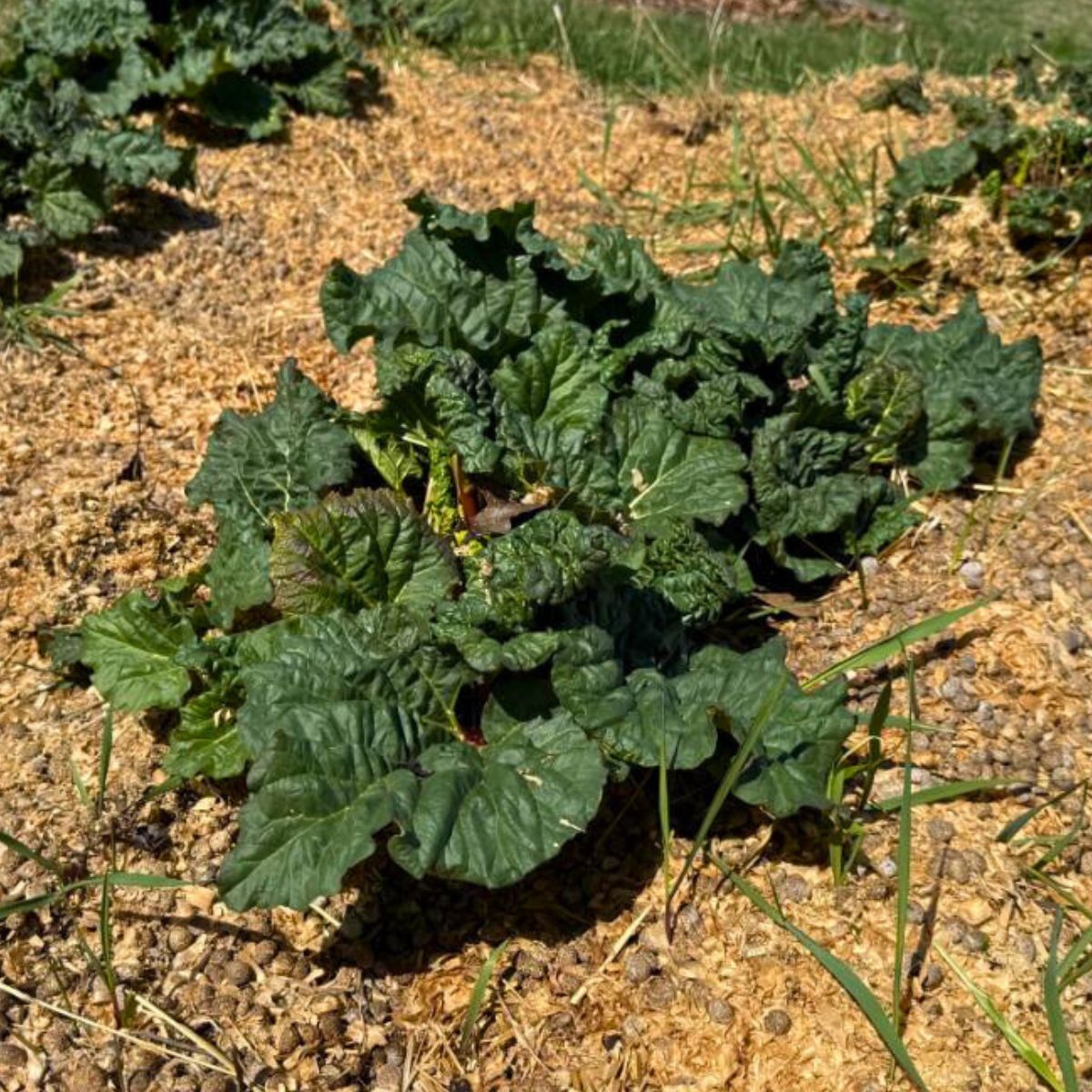
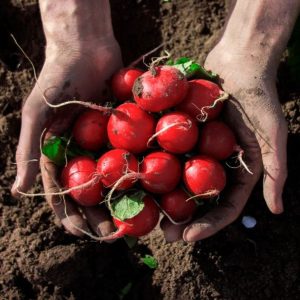
Clifford Stiner
We’re can I get seeds?
Calvin Douglas
I would add Oxheart to the list.
Mary Ward
A great one to add!